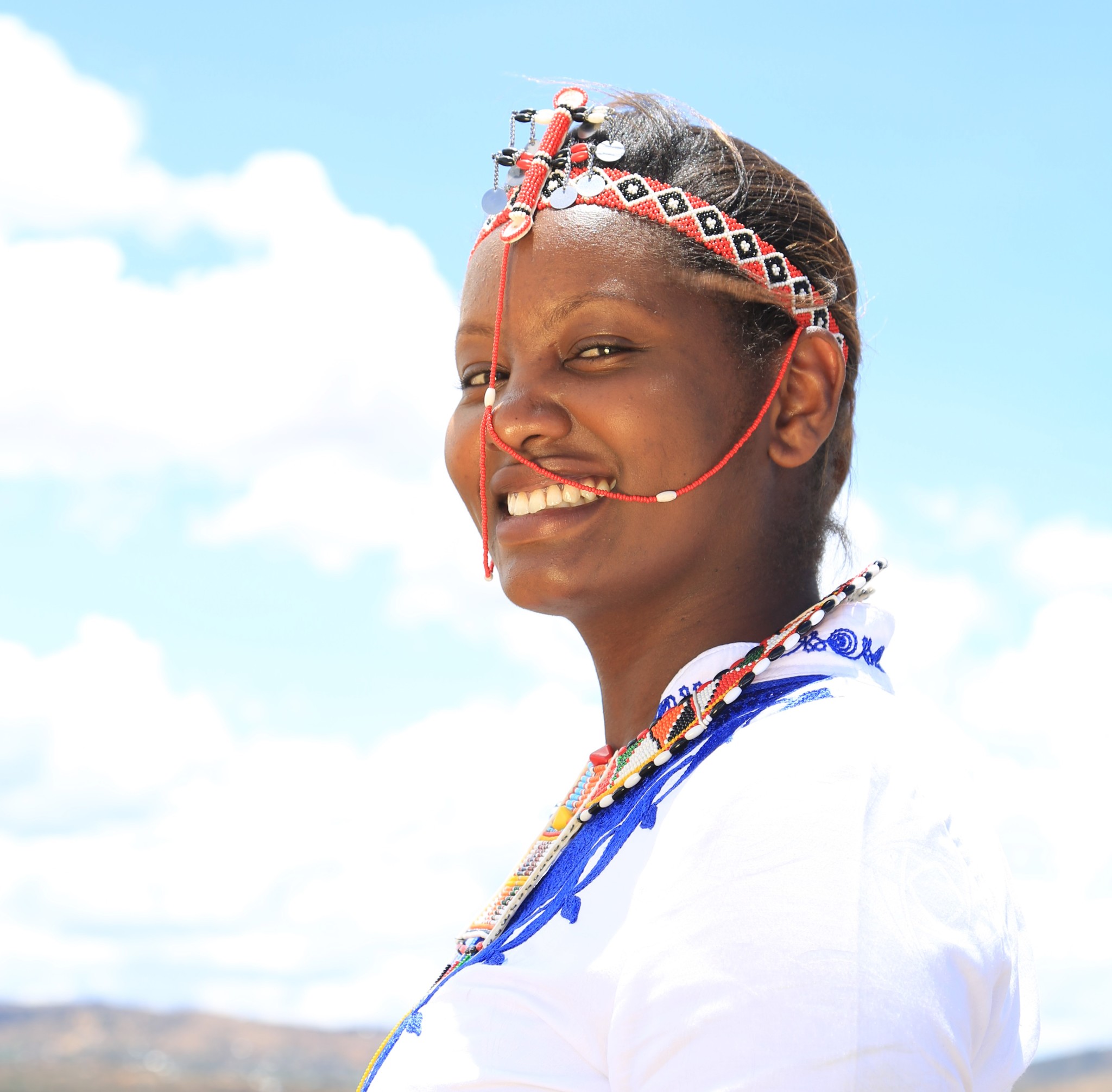Championing Communities to Take the Lead in Ending Female Genital Mutilation #NoMorePain
Keeping girls in school is a goal many organisations strive for across Kenya. There are countless programs promoting quality education as a critical tool toward sustainable development. At the same time, we must recognize that to realise a world where all girls receive an education and have the opportunities they deserve, then we must also tackle the harmful social and cultural norms that hold them back – for example, female genital mutilation/cutting (FGM/C).
In many countries, including Kenya, there has been a notable reduction in the prevalence of female genital mutilation/cutting (FGM/C). Kenya’s FGM/C prevalence rate fell to 21%1 in 2014 – a steady decrease from 27.1% in 2008/09, and 32.2% in 2003. Kenya is among six African countries with the highest possibility of eradicating FGM/C by 20312.
Collective efforts from governments, civil society, and communities are mainly responsible for the reduced prevalence. However, for this momentum to be sustained, efforts to eliminate the practice must be strengthened. It is time to accelerate initiatives that meaningfully support communities to take ownership and leadership of efforts to abandon FGM/C as well strengthen the implementation of end-FGM/C laws.

A common factor influencing the continuation of female genital mutilation/cutting is the social acceptance and avoidance of social stigma. FGM is generally practised as a matter of social convention, and is interlinked with social acceptance, peer pressure, the fear of not having access to resources and opportunities as a young woman and to secure prospects of marriage. However, the social norms, customs and values that condone and sustain FGM/C are multi-faceted, vary across countries and even between communities, and can change over time. This presents a powerful and complex challenge for all those engaged in the effort to end the practice.
In addition to its physical risks, FGM/C is a violation of girls’ and women’s fundamental human rights. It constitutes an extreme form of discrimination against women and is evidence of deep-rooted inequality between the sexes, which it also sustains. FGM/C violates a girl’s rights to health, security and physical integrity, the right to be free from torture and cruel, inhuman or degrading treatment, and the right to life when the procedure results in death. It is a violation of the rights of children because it is almost always performed on minors without their consent. FGM/C also deprives girls and women of the right to make an independent decision about an intervention that has a lasting effect on their bodies and infringes on their autonomy and control over their lives.
Legal and policy interventions alone are not a sufficient deterrent for FGM/C. As a rite of passage, FGM/C carries a customary significance that can only be addressed by fully involving communities that hold this rite. In many such communities, the key to change lies in providing education to help transform the perceptions and attitudes of cultural gatekeepers such as elders and traditional healers.
Recognising that they hold the key to lasting abandonment of FGM/C, Amref Health Africa has worked in partnership with communities through their cultural and religious leaders to explore and adopt safe and culturally acceptable alternative rites of passage (ARP) to FGM/C and to end child early and forced marriage (CEFM).
Amref Health Africa has deliberately involved cultural gatekeepers of local communities in efforts to end FGM/C. This model has produced commendable results and can serve as a blueprint for ending FGM/C around the world.
In Marsabit and Samburu Counties of Kenya, for example, Amref works closely with communities through structured dialogue to end FGM/C and CEFM. This approach targets clan elders who are the ultimate community decision makers, and educates them on alternative rites of passage increasing the chances of abandoning retrogressive cultural practises against the girl. Research has also schools to be an effective point of entry within communities.
These approaches are founded on the understanding that lasting and sustainable change in the eradication of FGM/C and CEFM must first and foremost come from, and be led by the communities themselves. Understanding the cultural significance of upholding rites of passage has enabled host communities take up Alternative Rites of Passage (ARP), that retain all the cultural celebrations surrounding a girl’s transition to womanhood but without the cut and early marriage.
Communities have gone forth to design for themselves cultural rites of passage that have no ‘cut’ but which still retain traditionally or religiously meaningful rituals that sufficiently support girls in their cultural transition rites to womanhood. Cultural and religious leaders take leadership and involve their communities in structured dialogue that gradually helps members to reach a consensus on the need to adopt a culturally acceptable alternative in place of FGM/C. Women, youth, girls and boys are all involved and communities have been able to take ownership of the global FGM/C abandonment campaign without feeling that their cultures are being externally attacked for change.
With the uptake in community-led alternative rites of passage as a safe alternative to FGM/C, a greater community-led movement and momentum is building up on accelerating the abandonment of FGM/C. To date, over 16,000 girls have been supported by their communities and Amref Health Africa to graduate through ARP instead of going through FGM/C in Kenya and Tanzania. Most of these girls have also been retained in school instead of being married off thereby creating a positive ripple effect benefitting girls and their communities.
We have learned that communities hold the key to creating lasting change to the problems they face and that they are willing to drive the change from within if they are approached respectfully and equipped with correct information. We encourage all partners working towards ending FGM/C and CEFM to put communities at the very centre of it all so as to ensure sustained and lasting change.


